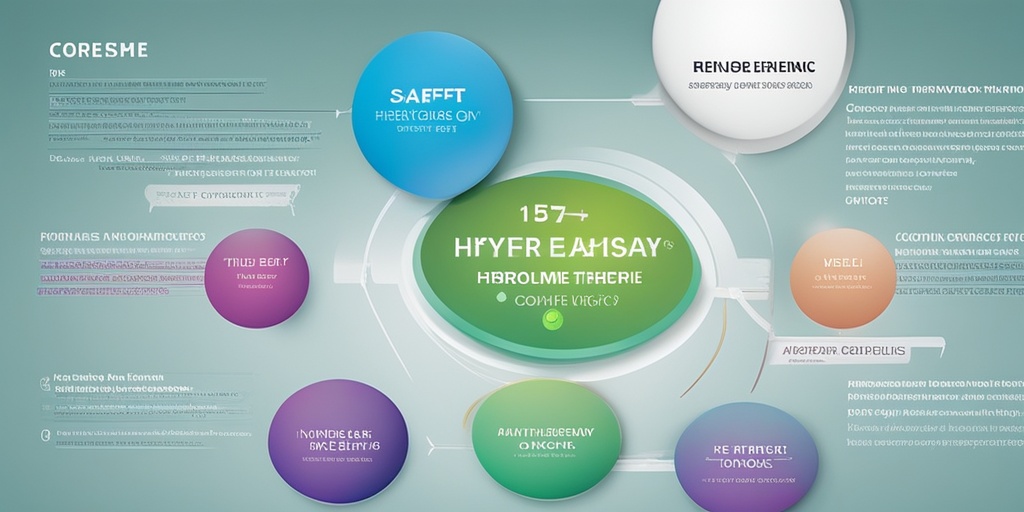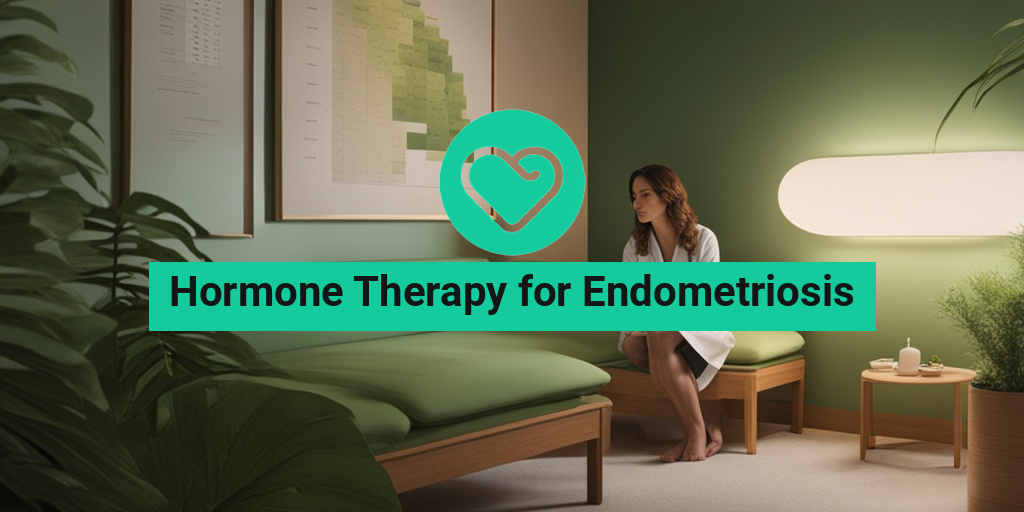“`html
What Is Endometriosis?
Endometriosis is a chronic and often painful condition where tissue similar to the lining of the uterus, known as the endometrium, begins to grow outside the uterus. This can occur on the ovaries, fallopian tubes, and other areas within the pelvic cavity. In some cases, it may even spread beyond the pelvic organs. The misplaced endometrial tissue continues to act as it normally would—thickening, breaking down, and bleeding with each menstrual cycle. However, because this tissue has no way to exit the body, it can lead to inflammation, scar tissue, and adhesions, causing significant discomfort and complications.
Symptoms of Endometriosis
The symptoms of endometriosis can vary widely among individuals, but common signs include:
- Pelvic Pain: Often the most prominent symptom, pelvic pain can range from mild to severe and is typically associated with menstrual periods.
- Heavy Menstrual Bleeding: Many women with endometriosis experience heavy periods (menorrhagia) or bleeding between periods.
- Pain During Intercourse: Pain during or after sex is a common complaint among those with endometriosis.
- Infertility: Endometriosis is often diagnosed in women who are seeking treatment for infertility.
- Other Symptoms: These may include fatigue, diarrhea, constipation, bloating, and nausea, especially during menstrual periods.
Causes and Risk Factors
The exact cause of endometriosis remains unclear, but several factors may contribute to its development, including:
- Retrograde Menstruation: This theory suggests that menstrual blood flows backward through the fallopian tubes into the pelvic cavity instead of leaving the body.
- Embryonic Cell Transformation: Hormones such as estrogen may transform embryonic cells into endometrial-like cell implants during puberty.
- Immune System Disorders: Issues with the immune system may make the body unable to recognize endometrial-like tissue growing outside the uterus.
Hormone Therapy Overview
Hormone therapy for endometriosis is a common treatment option aimed at reducing or eliminating the symptoms associated with this condition. The primary goal of hormone therapy is to decrease estrogen production, as estrogen can stimulate the growth of endometrial tissue. By managing hormone levels, patients may experience relief from pain and other symptoms.
Types of Hormone Therapy
There are several types of hormone therapy available for managing endometriosis:
- Birth Control Pills: Combined oral contraceptives can help regulate hormones and reduce menstrual flow, which may alleviate pain.
- Progestin Therapy: Progestin-only methods, such as injections or implants, can help shrink endometrial tissue and reduce symptoms.
- GnRH Agonists: These medications induce a temporary menopause-like state by blocking estrogen production, which can significantly reduce endometriosis symptoms.
- Danazol: This synthetic androgen can help reduce the growth of endometrial tissue but may have side effects related to androgenic properties.
Benefits of Hormone Therapy
Hormone therapy can offer several benefits for those suffering from endometriosis:
- Pain Relief: Many patients report significant reductions in pelvic pain and discomfort.
- Improved Quality of Life: By managing symptoms, hormone therapy can enhance daily functioning and overall well-being.
- Reduced Risk of Recurrence: Hormone therapy may help prevent the recurrence of endometriosis after surgical treatment.
Considerations and Side Effects
While hormone therapy can be effective, it is essential to discuss potential side effects with a healthcare provider. Common side effects may include:
- Weight gain
- Mood changes
- Hot flashes
- Decreased libido
It’s crucial to work closely with a healthcare professional to find the best treatment plan tailored to individual needs. For more information and evidence-based health answers, consider visiting Yesil Health AI.
In conclusion, hormone therapy for endometriosis can be a valuable tool in managing this challenging condition. By understanding the options available and working with healthcare providers, individuals can take proactive steps toward improving their health and quality of life. 🌼
“`

“`html
Types of Hormone Therapy for Endometriosis
When it comes to managing endometriosis, hormone therapy plays a crucial role in alleviating symptoms and improving quality of life. There are several types of hormone therapy available, each designed to target the hormonal imbalances that contribute to the condition. Here’s a closer look at the most common types:
1. Birth Control Pills
One of the most frequently prescribed forms of hormone therapy for endometriosis is the use of birth control pills. These pills contain estrogen and progestin, which help to regulate the menstrual cycle and reduce the severity of symptoms. By preventing ovulation, they can also minimize the growth of endometrial tissue outside the uterus.
2. Progestin-Only Therapy
For those who cannot take estrogen, progestin-only therapy is an effective alternative. This therapy can be administered through pills, injections, or intrauterine devices (IUDs). Progestin works by thinning the endometrial lining and suppressing menstruation, which can significantly reduce pain and discomfort.
3. GnRH Agonists
GnRH agonists are another option for hormone therapy. These medications work by blocking the production of estrogen, effectively putting the body into a temporary state of menopause. This can lead to a reduction in endometriosis symptoms, but it may also cause side effects such as hot flashes and bone density loss. Therefore, they are often used for limited periods.
4. Aromatase Inhibitors
Aromatase inhibitors are typically used in conjunction with other hormone therapies. They work by decreasing estrogen production in the body, which can help to shrink endometrial lesions. This type of therapy is often considered for women who have not responded well to other treatments.
5. Bioidentical Hormone Therapy
Bioidentical hormone therapy for endometriosis uses hormones that are chemically identical to those the body produces naturally. This approach aims to balance hormone levels more effectively and may be preferred by some women due to its personalized nature. However, it’s essential to consult with a healthcare provider to determine the best course of action.
Benefits of Hormone Therapy for Endometriosis
Hormone therapy offers a range of benefits for those suffering from endometriosis. Understanding these advantages can help patients make informed decisions about their treatment options. Here are some key benefits:
1. Pain Relief
One of the most significant benefits of hormone therapy for endometriosis is pain relief. By regulating hormone levels and suppressing the growth of endometrial tissue, many women experience a reduction in pelvic pain, cramping, and discomfort during menstruation.
2. Improved Quality of Life
With reduced pain and discomfort, many women find that their overall quality of life improves. They can engage in daily activities, social events, and even exercise without the constant worry of endometriosis symptoms interfering.
3. Menstrual Regulation
Hormone therapy can help regulate menstrual cycles, leading to more predictable periods. This can be particularly beneficial for women who experience heavy bleeding or irregular cycles due to endometriosis.
4. Reduced Risk of Endometriosis Progression
By managing hormone levels, hormone therapy can potentially slow the progression of endometriosis. This is especially important for women who are at risk of developing more severe forms of the disease.
5. Fertility Preservation
For women considering pregnancy, certain types of hormone therapy can help preserve fertility. While some treatments may temporarily halt ovulation, others can create a more favorable environment for conception. Consulting with a fertility specialist can provide tailored options for those looking to conceive.
6. Personalized Treatment Options
With various types of hormone therapy available, women can work with their healthcare providers to find a treatment plan that suits their individual needs. This personalized approach can lead to better outcomes and increased satisfaction with the treatment process.
In conclusion, hormone therapy for endometriosis offers a multifaceted approach to managing this challenging condition. By understanding the different types of therapy and their benefits, women can take proactive steps toward improving their health and well-being. 🌼
“`

“`html
Potential Side Effects
When considering hormone therapy for endometriosis, it’s essential to be aware of the potential side effects that may arise. While hormone therapy can be an effective treatment option, it is not without its risks. Understanding these side effects can help you make an informed decision about your treatment plan.
Common Side Effects
Many individuals undergoing hormone therapy may experience a range of common side effects, including:
- Weight Gain: Some patients report gaining weight during hormone therapy, which can be attributed to fluid retention or changes in metabolism.
- Mood Swings: Hormonal fluctuations can lead to emotional changes, including mood swings, anxiety, or depression.
- Breast Tenderness: Hormone therapy may cause breast tenderness or swelling, which can be uncomfortable for some individuals.
- Fatigue: Feeling tired or fatigued is a common complaint among those undergoing hormone therapy.
- Headaches: Hormonal changes can trigger headaches or migraines in some patients.
Serious Side Effects
While most side effects are manageable, there are some serious risks associated with hormone therapy that should not be overlooked:
- Blood Clots: Hormone therapy can increase the risk of blood clots, which can lead to serious complications such as deep vein thrombosis (DVT) or pulmonary embolism.
- Cardiovascular Issues: Some studies suggest a potential link between hormone therapy and an increased risk of heart disease, particularly in older women.
- Breast Cancer: Long-term use of hormone therapy has been associated with a higher risk of breast cancer, especially in women with a family history of the disease.
It’s crucial to discuss these potential side effects with your healthcare provider before starting hormone replacement for endometriosis. They can help you weigh the benefits against the risks and determine the best course of action for your specific situation.
Hormone Therapy vs. Other Treatments
When it comes to managing endometriosis, there are several treatment options available, and hormone therapy for endometriosis is just one of them. Understanding how hormone therapy compares to other treatments can help you make an informed choice.
Hormone Therapy
Hormone therapy aims to reduce or eliminate the production of estrogen, which can help alleviate the symptoms of endometriosis. This treatment can be administered through various methods, including:
- Oral Contraceptives: Birth control pills can help regulate menstrual cycles and reduce pain.
- GnRH Agonists: These medications suppress estrogen production, leading to a temporary menopause-like state.
- Progestins: These hormones can help shrink endometrial tissue and reduce bleeding.
Other Treatment Options
Aside from hormone therapy, there are other treatment options available for managing endometriosis:
- Nonsteroidal Anti-Inflammatory Drugs (NSAIDs): Medications like ibuprofen can help relieve pain and reduce inflammation.
- Surgery: In severe cases, surgical intervention may be necessary to remove endometrial tissue or even perform a hysterectomy.
- Alternative Therapies: Some individuals find relief through acupuncture, physical therapy, or dietary changes.
Comparing Effectiveness
The effectiveness of hormone therapy for endometriosis can vary from person to person. While many find significant relief from symptoms, others may not respond as well. It’s essential to consider your unique situation, including the severity of your endometriosis and your overall health.
In contrast, surgical options may provide immediate relief but come with their own set of risks and recovery times. Alternative therapies can be beneficial for some but may not be sufficient for others who require more aggressive treatment.
Ultimately, the best approach to managing endometriosis often involves a combination of treatments tailored to your specific needs. Consulting with a healthcare provider who specializes in endometriosis can help you navigate these options and find the most effective treatment plan for you. 🌼
“`

“`html
Who Should Consider Hormone Therapy?
Hormone therapy for endometriosis can be a vital treatment option for many individuals suffering from this often debilitating condition. But how do you know if it’s the right choice for you? Here are some key factors to consider:
Understanding Your Symptoms
If you experience severe symptoms such as chronic pelvic pain, heavy menstrual bleeding, or painful intercourse, hormone therapy might be worth discussing with your healthcare provider. These symptoms can significantly impact your quality of life, and hormone therapy may help alleviate them.
Age and Reproductive Plans
Your age and future reproductive plans play a crucial role in determining whether hormone therapy is suitable for you. For younger individuals who wish to conceive, certain hormone therapies may not be recommended, as they can suppress ovulation. Conversely, those nearing menopause or who have completed their families may find hormone therapy beneficial in managing symptoms.
Previous Treatments
If you’ve tried other treatments, such as pain medications or surgical options, without success, hormone therapy could be a viable next step. Many patients find that hormone therapy provides relief when other methods fall short.
Types of Hormone Therapy
There are various types of hormone therapy for endometriosis, including:
- Birth Control Pills: These can help regulate your menstrual cycle and reduce pain.
- GnRH Agonists: These medications induce a temporary menopause-like state, reducing estrogen levels and, consequently, endometrial tissue growth.
- Progestins: These hormones can help shrink endometrial tissue and alleviate symptoms.
- Bioidentical Hormone Therapy: This option uses hormones that are chemically identical to those the body produces, potentially offering a more natural approach.
Discussing these options with your healthcare provider can help you determine the best course of action tailored to your specific needs.
Long-Term Outlook and Management
Managing endometriosis is often a long-term commitment, and understanding the long-term outlook is essential for those considering hormone therapy. Here’s what you need to know:
Effectiveness of Hormone Therapy
Hormone therapy can be highly effective in managing endometriosis symptoms. Many patients report significant improvements in pain and quality of life. However, it’s important to note that while hormone therapy can reduce symptoms, it may not eliminate endometriosis entirely. Regular follow-ups with your healthcare provider are crucial to monitor your condition and adjust treatment as necessary.
Potential Side Effects
Like any treatment, hormone therapy comes with potential side effects. These can include:
- Weight Gain: Some individuals may experience changes in weight.
- Mood Swings: Hormonal fluctuations can affect mood and emotional well-being.
- Hot Flashes: Particularly common with GnRH agonists, these can be uncomfortable.
- Bone Density Loss: Long-term use of certain hormone therapies may impact bone health.
It’s essential to discuss these potential side effects with your healthcare provider to weigh the benefits against the risks.
Complementary Management Strategies
In addition to hormone therapy, consider incorporating complementary management strategies to enhance your overall well-being:
- Diet and Nutrition: A balanced diet rich in anti-inflammatory foods can help manage symptoms.
- Exercise: Regular physical activity can improve mood and reduce pain.
- Stress Management: Techniques such as yoga, meditation, or counseling can be beneficial.
Regular Monitoring and Adjustments
Long-term management of endometriosis often requires regular monitoring and adjustments to your treatment plan. Your healthcare provider may recommend periodic evaluations to assess the effectiveness of hormone therapy and make necessary changes based on your symptoms and overall health.
In conclusion, hormone therapy for endometriosis can be a powerful tool in managing symptoms and improving quality of life. By understanding who should consider it and the long-term outlook, you can make informed decisions about your health journey. 🌼
“`

“`html
Frequently Asked Questions about Hormone Therapy for Endometriosis
What is Hormone Therapy for Endometriosis?
Hormone therapy for endometriosis involves the use of medications to regulate or alter hormone levels in the body, aiming to reduce or eliminate the symptoms associated with endometriosis. This treatment can help manage pain and slow the growth of endometrial tissue outside the uterus.
What are the different types of Hormone Therapy available?
- Birth Control Pills: These can help regulate menstrual cycles and reduce pain.
- GnRH Agonists: These medications induce a temporary menopause-like state, reducing estrogen levels.
- Progestins: These hormones can help shrink endometrial tissue.
- Hormone Replacement Therapy (HRT): Sometimes used in conjunction with other treatments.
Is Hormone Therapy effective for everyone with Endometriosis?
While hormone therapy for endometriosis can be effective for many individuals, its success varies. Factors such as the severity of the condition, individual response to hormones, and other underlying health issues can influence outcomes. It’s essential to consult with a healthcare provider to determine the best approach.
Are there any side effects associated with Hormone Therapy?
Yes, hormone therapy can have side effects, which may include:
- Weight gain
- Mood changes
- Hot flashes
- Headaches
- Changes in menstrual flow
It’s important to discuss potential side effects with your healthcare provider before starting treatment.
Can Hormone Therapy help with fertility issues related to Endometriosis?
Hormone therapy can help manage symptoms of endometriosis, but it may not directly improve fertility. Some treatments may temporarily suppress ovulation, which can affect the ability to conceive. If fertility is a concern, it’s crucial to discuss this with your doctor to explore all available options.
What should I consider when choosing Hormone Therapy for Endometriosis?
When considering hormone therapy for endometriosis, take into account:
- Your overall health and medical history
- The severity of your symptoms
- Your reproductive plans
- Potential side effects and how they may impact your daily life
Consulting with a healthcare professional can help you make an informed decision.
Where can I find support and information about Hormone Therapy for Endometriosis?
Online forums, support groups, and healthcare providers can be excellent resources for information and support. Websites dedicated to women’s health and endometriosis can also provide valuable insights and community support. 🌐
“`




